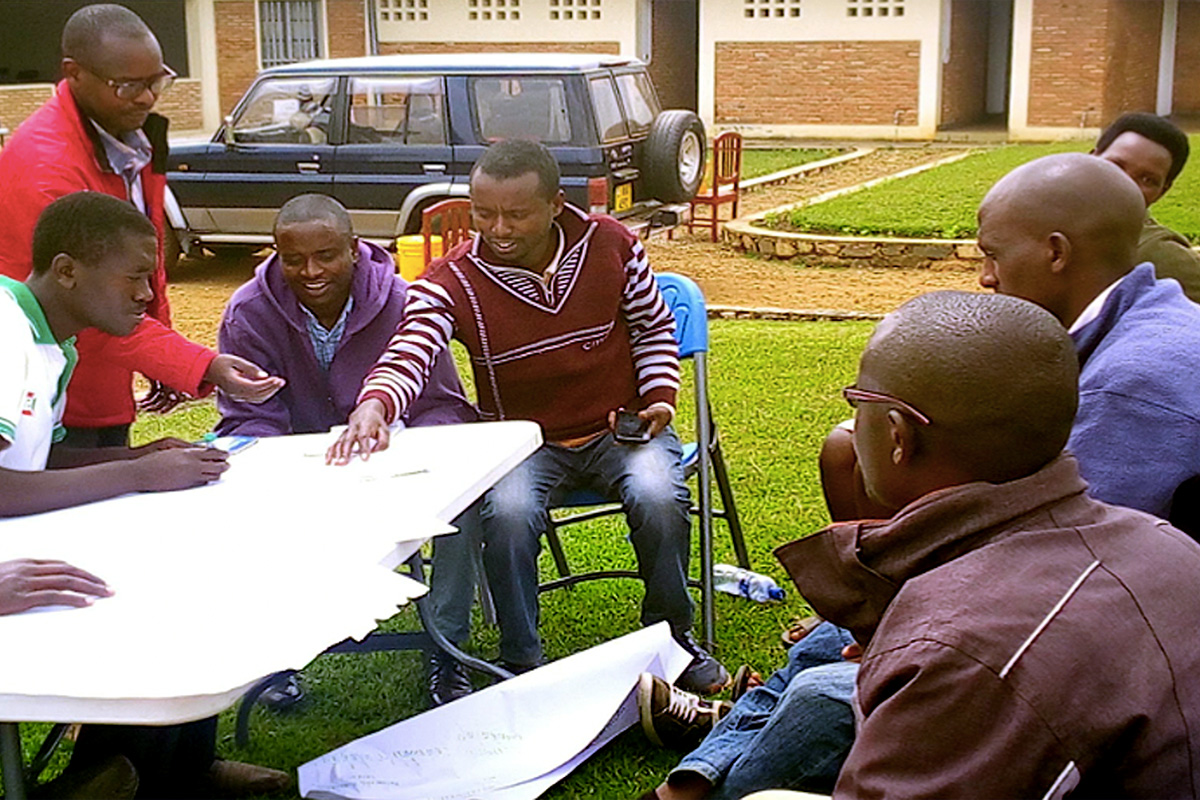
“I learned to put myself in other people’s shoes.”
In Aug. 2015, Pierre Nkurunziza, the President of Burundi, announced his candidacy for a controversial third term.
Conflict flared throughout the country—including in the commune of Mugongo-Manga, where a man named Ndayizeye Félicien lived. As a supporter of the ruling CNDD-FDD party, the 32-year-old took to the streets and came face to face with a protester named Bagabo Edouard who supported MSD, the opposition party.
As Bagabo remembered, that first meeting was not peaceful: “We shouted and insulted him and the other young supporters of the ruling party. In response, they took to the streets to hunt us down.”
Tensions only grew as time passed and the two men dug deeper into their positions. They kept running into each other.
"We fought wherever we saw each other in public due to our divergent political views,” Ndayizeye said. “We pitted both our families against each other and encouraged them to become enemies to one another.”
On Sept. 4, Ndayizeye ran into Bagabo at a bar, and the political debate escalated into a brawl. Neither man was willing to concede, and the fight turned ugly. As Ndayizeye put it: “Had others not intervened on that day, one of us would not be alive today.”
Yet Ndayizeye and Bagabo are not only alive today but also business partners. They credit Search for Common Ground for this transformation.
In 2016, the two men joined a training on how to navigate conflict and collaborate across divides. Search for Common Ground encouraged participants to look past anger, see the human beneath the label, and build on shared interests.
Initially, Ndayizeye did not find the training useful—“At first, it was very difficult to see the benefit of reconciling,” he said—but the lessons started to take root.
“It felt as though the training was designed especially with me in mind,” Ndayizeye said. “I learned about forgiving others. Most importantly, I learned to put myself in other people’s shoes before making a decision.”
Ndayizeye came to feel that political anger and hatred blocked community progress. So he decided to reach out to Bagabo.
The meeting took place at Bar chez Amédée—the same place that Ndayizeye and Bagabo nearly fought to the death. This time, the encounter looked a lot different.
“We invited our parents, the administration, and other young people from political parties so they could witness,” Bagabo said. “We not only have the ability to sit together and have a discussion, but also to run initiatives in our community and train others.”
The community took note, as many had known about the feud between Ndayizeye and Bagabo. Indeed, Ndonse Mélance, a supporter of the CNDD-FDD party, had watched for months as Ndayizeye lashed out at opposition activists. Suddenly, everything had changed:
“We couldn’t believe they were actually reconciling because the hatred between them was so strong. Ndayizeye long showed resentment towards the young people who were in other opposition parties, but with Bagabo his disgust and hatred was by far the worse. He once told us that he wanted to see Bagabo die and he would be willing to kill him if they met by chance. To see them reconcile is something unimaginable. This occurrence has given us in the surrounding community a great example to live by.”
As part of the reconciliation, Bagabo and Ndayizeye decided to partner on a new initiative to help young people gain financial security. The former enemies now stood on the same side of a challenge. Today, Ndayizeye can reflect on the extent of the change.
“I saw those in the opposition as enemies, I wanted to see them all rot in prison or even die,” Ndayizeye said. “Now, my life is very positive…. I finally feel that I am an asset to the community.”